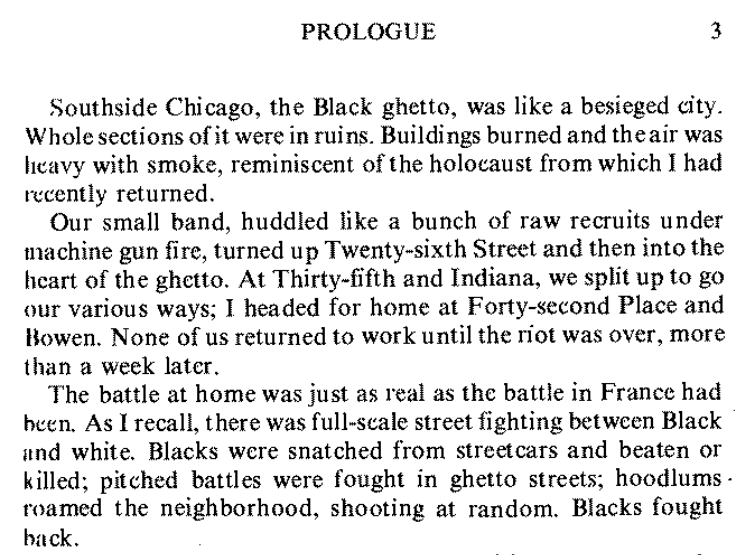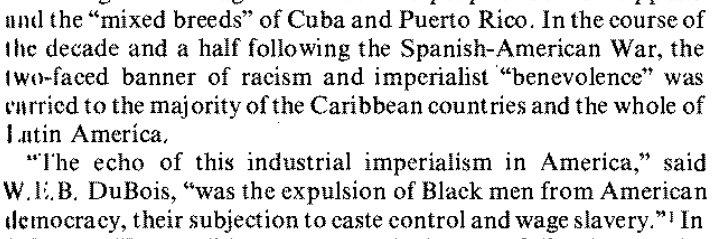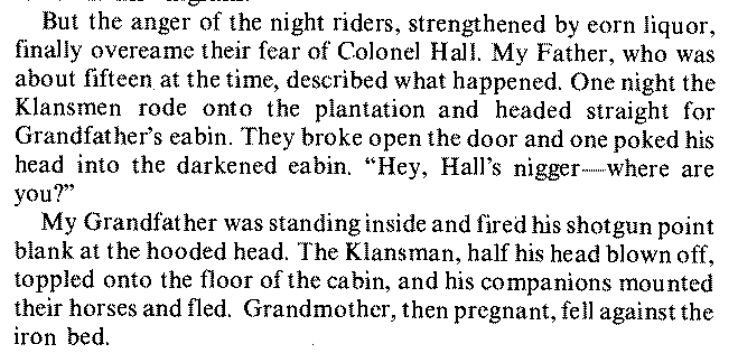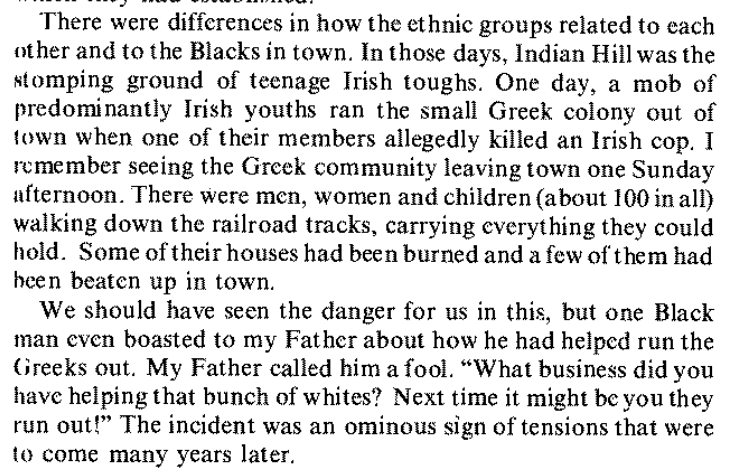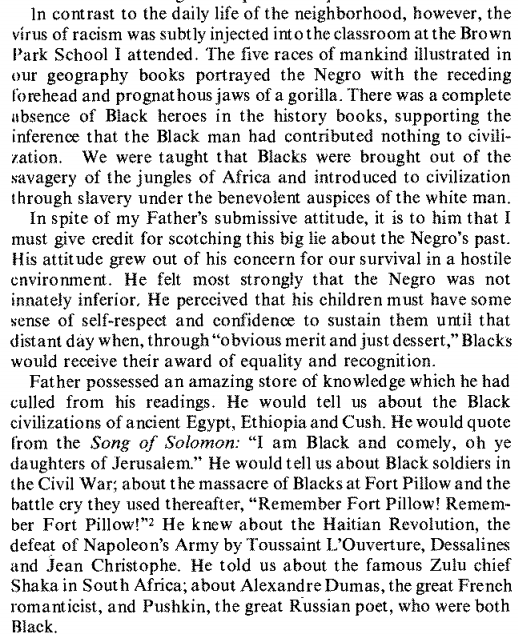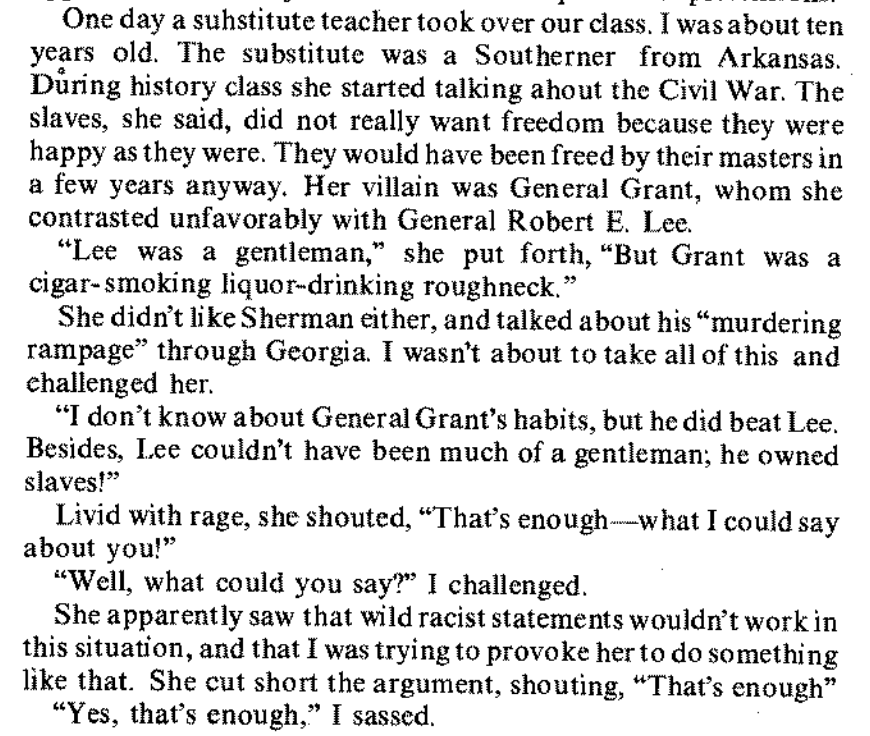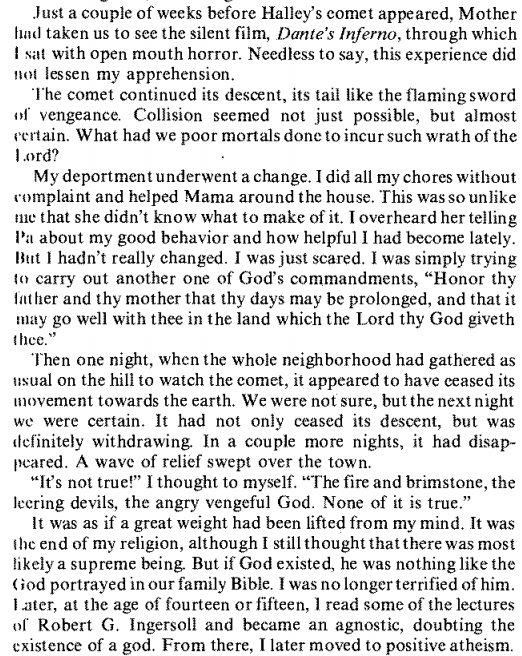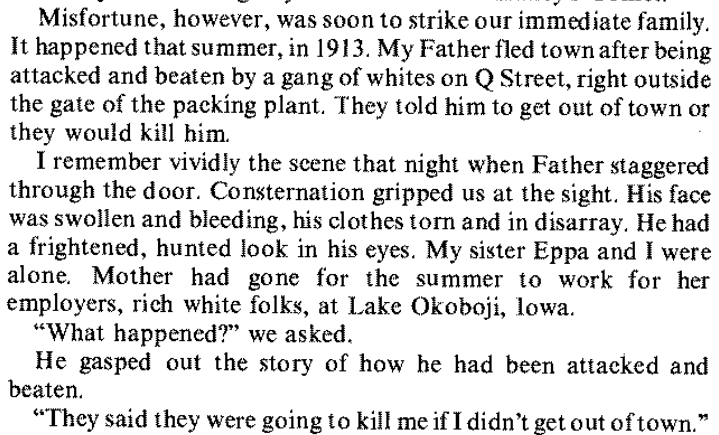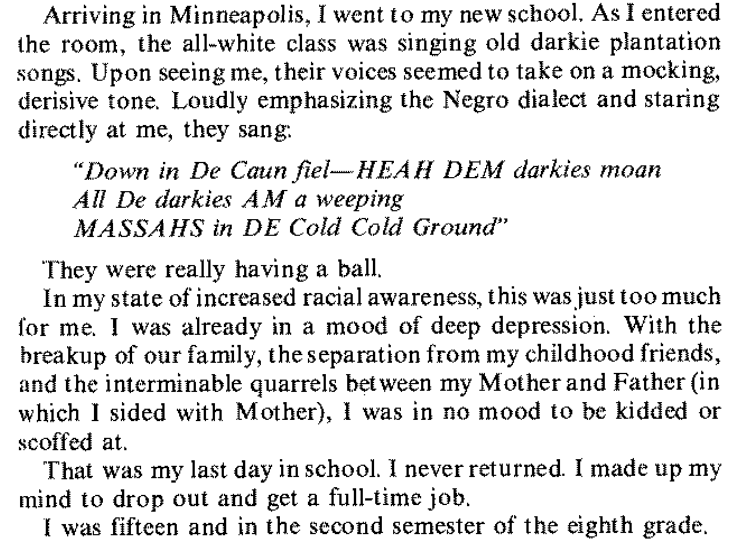Harry Haywood's 'Black Bolshevik.'
Coming back from World War I to the battlefield of the Chicago race riot.
pg 3
Coming back from World War I to the battlefield of the Chicago race riot.
pg 3
Harry describes the age he was born in - when US empire was expanding its power and subjugation across the globe.
The process was mirrored at home in the dispossession of its internal black colony.
pg 5
The process was mirrored at home in the dispossession of its internal black colony.
pg 5
A basic but important thought strikes me reading this opening section: advancement for black people in the US hasn't been a straight line from worst to better to now.
There have been periods of reaction that abrogated rights and lives. Revolutions and counter-revolutions.
There have been periods of reaction that abrogated rights and lives. Revolutions and counter-revolutions.
Harry's education in black history differed at school, where he was an ace student, and at home from the lessons of his father.
The appearance of Halley's comet in May of 1910 first stiffens Harry's religion out of fear...then when it disappears he has a revelation about the fire and brimstone sermons he's been hearing.
pg 31
pg 31
Then, Harry's father is beat by an Irish gang and told to get out of town or he'll be killed. The family's life is shattered, as they do, heading for Minneapolis.
pg 32
pg 32
In Minneapolis, Harry is greeted at his new school by the mockery of racist classmates. He doesn't go back.

 Read on Twitter
Read on Twitter